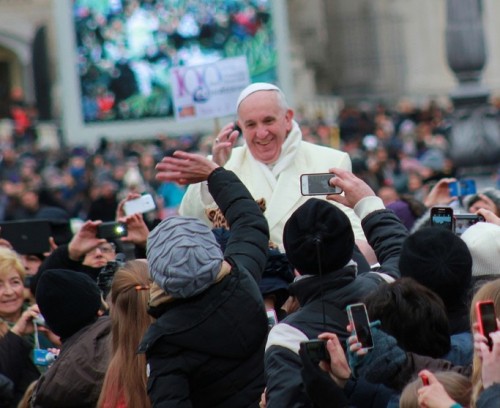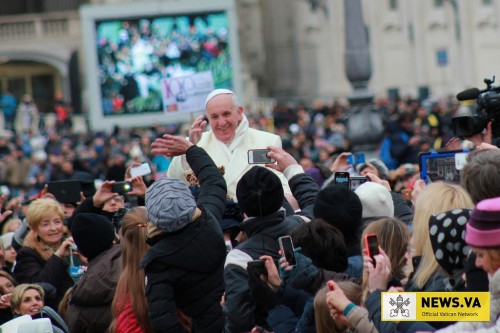5th March 2015
The Challenge of Pope Francis


Pope Francis has caught the global imagination. That is one of the reasons for his global impact. There are few world leaders who speak to humanity, across territorial and cultural boundaries, in the same way. It provides the Pope with a global pulpit that enables him to reach out to people of all faiths, creeds and backgrounds.
All modern Popes have understood this global role of their office, and borne the responsibility that goes with it. Each has used this influencing power in a different way. Benedict XV sought to use it to bring the warring powers of WWI to the peace table. John XXIII, the first Pope of the global television age, understood that part of the fascination of the second Vatican Council was the way that it was conceived as not just a Church but a global event. Paul VI brought his message to the United Nations fifty years ago, the first Pope to do so. John Paul II travelled the world, visiting countries that never thought they would ever see a Pope on their land. Benedict XVI, the ‘teaching Pope’, was always conscious that his words would still be read and studied years after most political speeches had been forgotten.
Pope Francis uses the pulpit to challenge. He challenges the Catholic Church, but also – especially – he challenges world leaders. He asks them to look beyond national interests to see the world through broader, transnational perspectives. And he asks us to hold them to account, and in turn accept our responsibility for the planet, for the poor and vulnerable, for tackling conflict – or just for our neighbour’s well-being. It is a bold approach that exposes him to criticism and close scrutiny, because that it what happens when you place yourself in the public square. But it also carries the message of the Holy See to places it may never have reached before.
This week I am in Durham, at the invitation of the Centre for Catholic Studies, and will speak on this theme of the challenge of Pope Francis. It is too late to ask you to join me at Ushaw College, the former seminary at Durham. But you are very welcome to read the speech. I would be interested in what you think.
Thank you for making your address available. I found your expose of the Pope’s message within the 3 areas of political, economic and nature particularly helpful and encouraging.